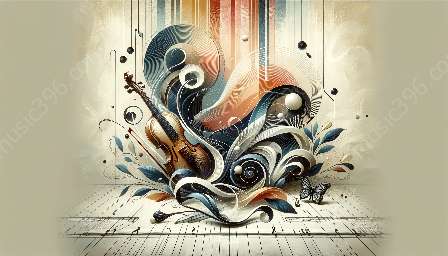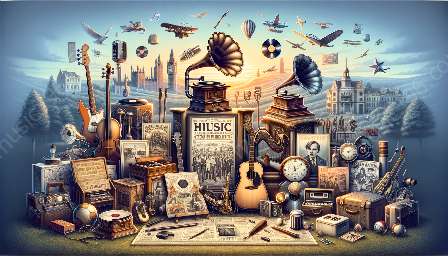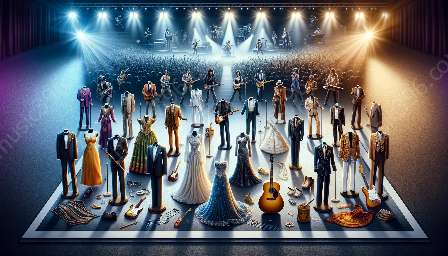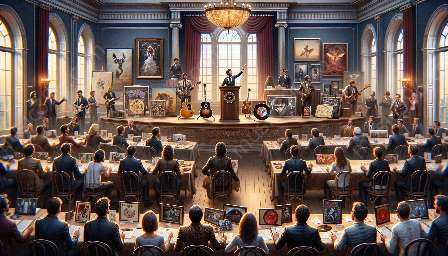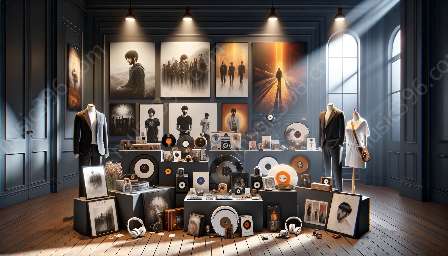Music autograph forgery is a fascinating but concerning phenomenon that sheds light on the psychological factors driving individuals to engage in fraudulent activities. It also raises important questions about the authenticity of music memorabilia. This topic cluster focuses on understanding the psychological motivations behind music autograph forgery, explores strategies for detecting such forgeries, and delves into the world of music art and memorabilia.
The Psychology of Music Autograph Forgery
Music autograph forgery stems from various psychological factors, including the desire for financial gain, admiration for musicians, and the need for validation and recognition. Understanding the underlying psychological drivers can provide valuable insights into the behavior of forgers and the impact on collectors and the music industry.
Financial Motivations
One of the primary psychological factors driving music autograph forgery is the potential for financial gain. Forgers may see the market for autographed music memorabilia as lucrative and seek to capitalize on the demand for rare and authentic items. This drive for monetary profit can lead individuals to engage in deceptive practices, including the creation of fake autographs.
Idolization of Musicians
Some forgers are driven by a deep admiration for musicians and artists. Their desire to own a piece of their idol's legacy can lead them to unethical means, such as fabricating autographs. This psychological factor taps into the emotional connection individuals have with music and the influential figures within the industry.
Need for Validation and Recognition
Forgers may also be motivated by the need for validation and recognition. By creating forged autographs, individuals seek to insert themselves into the narrative of the music world and gain acknowledgment for their efforts, albeit through deceitful methods. This desire for validation drives them to produce counterfeit items that are perceived as authentic.
Music Autograph Forgery Detection
Given the prevalence of music autograph forgery, reliable detection methods are essential for protecting collectors and preserving the integrity of music memorabilia. Detecting forged autographs relies on a combination of scientific analysis, expertise, and technological advancements.
Scientific Analysis
Forensic analysis plays a crucial role in detecting music autograph forgeries. Examination of ink, paper, and writing patterns can help experts differentiate between genuine and fake autographs. Utilizing scientific methods, such as ink chromatography and microscopic inspections, enables the identification of inconsistencies and irregularities in the autographs.
Expert Authentication
Seeking authentication from reputable experts and organizations is integral to the detection of music autograph forgeries. The expertise of professionals who specialize in music memorabilia and autographs is invaluable in verifying the authenticity of signatures. Their knowledge and experience in scrutinizing autographs provide an added layer of protection for collectors and buyers.
Technological Advancements
Advancements in technology, particularly in the field of digital imaging and analysis, have enhanced the detection of music autograph forgeries. High-resolution imaging, digital comparison techniques, and database comparisons aid in identifying inconsistencies and anomalies in autographs, contributing to more accurate authentication processes.
Music Art & Memorabilia
The world of music art and memorabilia encompasses a rich tapestry of collectible items, including autographs, instruments, and artwork associated with iconic musicians. Understanding the intricate relationship between music, art, and collectibles provides enthusiasts with a deeper appreciation for the cultural and historical significance of music memorabilia.
Cultural Significance
Music memorabilia holds a significant role in preserving the cultural heritage and legacy of artists and bands. Autographs serve as tangible connections to the personalities and talents that have shaped the music industry. Recognizing the cultural value of these items underscores the importance of authenticity and the detrimental impact of forgeries on the historical narrative.
Collectors' Appreciation
For collectors, music art and memorabilia represent cherished possessions that capture moments of music history. The emotional attachment and sentimental value attributed to these items make the detection of forgeries paramount. Authentic collectibles contribute to the integrity of personal collections and the broader community of music enthusiasts.
Promoting Authenticity
By shedding light on the complexities of music autograph forgery and reinforcing the significance of authenticity, this topic cluster advocates for the ethical acquisition and preservation of music memorabilia. Promoting awareness of the psychological factors driving forgeries and the measures for detection underscores the collective effort in safeguarding the integrity of the music art and memorabilia market.

